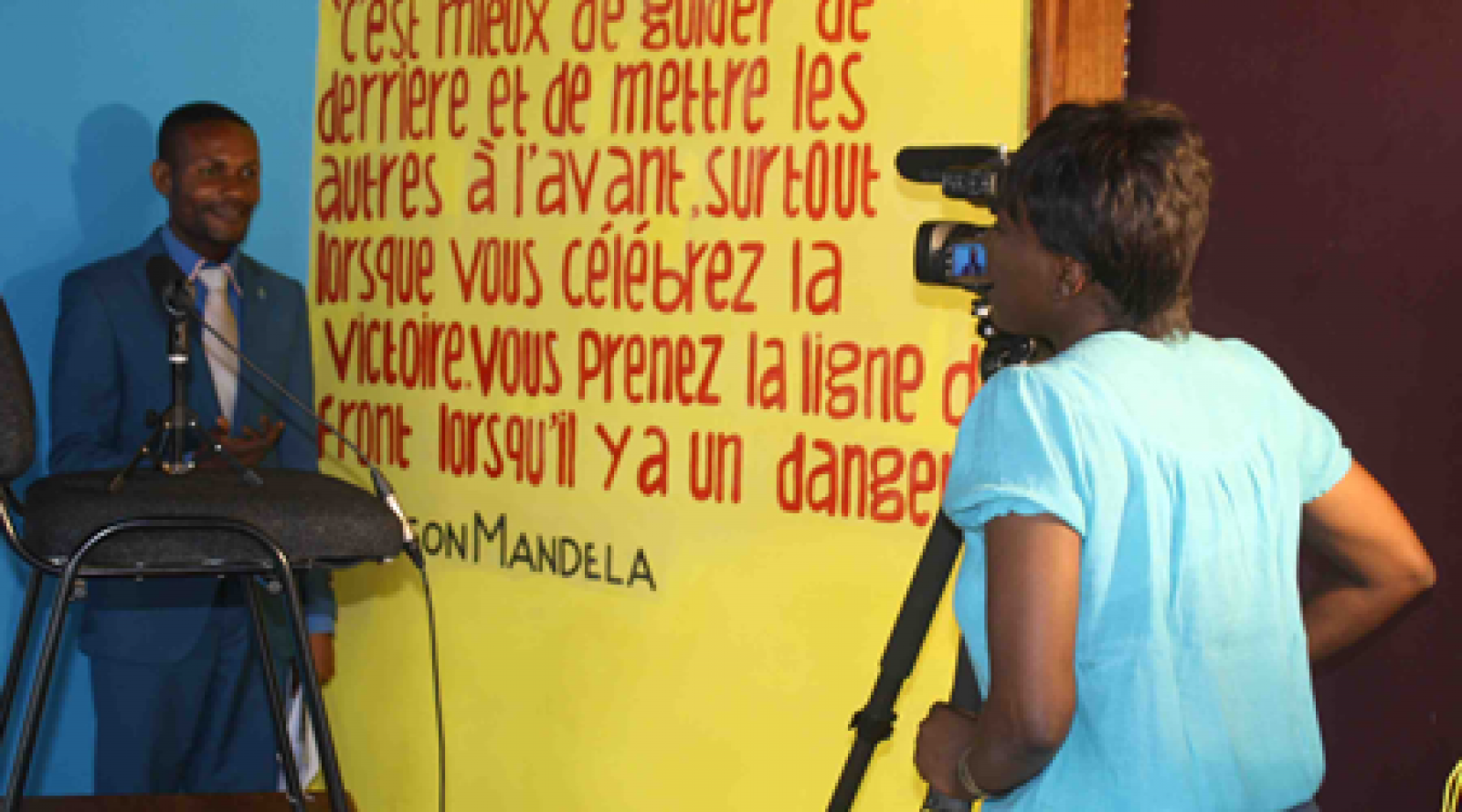
SHARE
With roads and infrastructure still in disrepair from the First and Second Congo Wars, the Democratic Republic of Congo (DRC) faces some of the world’s greatest mobility and communications challenges.
The country is large — around two-thirds the size of Western Europe— and lack of transportation options severely restricts travel. For instance, a recent 3,000 km car trip that should have been measured in hours required 15 days to complete. Air travel is in many cases the sole option for moving from place to place.
Unreliable Internet service also severely hampers communication. In the political party realm, for example, party leaders have considerable difficulty staying in touch with and conveying information to their rank and file members located in different communities.
To help parties find alternative means for getting messages to members far away from the capital city of Kinshasa, and to help them formulate those messages, NDI conducted a four-month course for party members on both policy development and dissemination. Six leading majority and opposition parties each sent two Kinshasa-based representatives to participate in NDI’s Policy Development Training School.
The program featured five two-day sessions on policy development and how to gather and use public opinion; public opinion research skills to identify issues in a more in-depth way; how political parties formulate and adopt policy, and issues that often arise in that process; strategies for communicating policies to the public and media; and how to engage constituents on policy issues.
Each session focused on the practical application of each topic. For instance, in the session on engaging constituents, participants conducted simulation exercises on how to communicate with constituents and involve them in the policy process, and were joined by members of parliament who helped reinforce the importance of public outreach.
At the end of the program, party members were asked to prepare a training DVD summarizing what they learned about policy development to share with their fellow members. Adiya Tshipuku Kamanga, a journalist for Agence France Presse (AFP), provided technical expertise to help participants make the videos. The exercise helped participants familiarize themselves with a new technology while creating a product that would help educate staff in the field. Heads of parties enthusiastically participated in taping sessions, which allowed them to communicate directly with their members.
The videos have emerged as a viable solution to the on-going communication infrastructure challenges. Eleven copies of each party’s video were formally handed over to the head of each party so that they could send a DVD, likely by courier, to party members in each of the country’s 11 provinces. Parties will also be able to use the DVD method to train members in other aspects of the policy process and party organizing.
"It was a great experience, said Adrien Malenga, a participant from the DRC’s Ecidé party. “This is a first, since it has never been done before in our party."
Related:
- Reach Out to Us: Findings from Focus Groups with Young Men and Women in the Democratic Republic of the Congo
- NDI-IFES Election Experts Recommend Broad Review of Electoral Process in the DRC
Published Nov. 20, 2012


